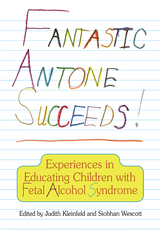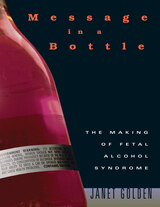
The book consists of separate chapters written in a popular and accessible style by psychologists, teachers, and birth and adoptive parents of alcohol-affected children. Many chapters are personal stories with emotional power. A birth mother, for example, tells of her anguish when she realizes that she has recovered from her own alcoholism but her daughter cannot. This mother describes how she dealt with her grief, how she told her daughter the truth, her daughter's relief at finally understanding what was wrong, and how they both developed ways of overcoming her daughter's learning problems.
Other chapters describe how experienced teachers have learned to organize classrooms where alcohol-affected children can thrive and how therapists have learned to work with parents. One chapter summarizes medical knowledge of FAS/FAE and offers information useful for understanding a child's learning and behavioral problems and devising educational approaches. The book includes lists of important resources, organizations to contact, and descriptions of effective classroom practices for teachers.
Without minimizing the seriousness of FAS/FAE and the first priority prevention, Fantastic Antone Succeeds provides practical tools and strategies that can help alcohol-affected individuals and their families lead happier, more productive lives.

A generation has passed since a physician first noticed that women who drank heavily while pregnant gave birth to underweight infants with disturbing tell-tale characteristics. Women whose own mothers enjoyed martinis while pregnant now lost sleep over a bowl of rum raisin ice cream. In Message in a Bottle, Janet Golden charts the course of Fetal Alcohol Syndrome (FAS) through the courts, media, medical establishment, and public imagination.
Long considered harmless during pregnancy (doctors even administered it intravenously during labor), alcohol, when consumed by pregnant women, increasingly appeared to be a potent teratogen and a pressing public health concern. Some clinicians recommended that women simply moderate alcohol consumption; others, however, claimed that there was no demonstrably safe level for a developing fetus, and called for complete abstinence. Even as the diagnosis gained acceptance and labels appeared on alcoholic beverages warning pregnant women of the danger, FAS began to be de-medicalized in some settings. More and more, FAS emerged in court cases as a viable defense for people charged with serious, even capital, crimes and their claims were rejected.
Golden argues that the reaction to FAS was shaped by the struggle over women's relatively new abortion rights and the escalating media frenzy over "crack" babies. It was increasingly used as evidence of the moral decay found within marginalized communities--from inner-city neighborhoods to Indian reservations. With each reframing, FAS became a currency traded by politicians and political commentators, lawyers, public health professionals, and advocates for underrepresented minorities, each pursuing separate aims.
READERS
Browse our collection.
PUBLISHERS
See BiblioVault's publisher services.
STUDENT SERVICES
Files for college accessibility offices.
UChicago Accessibility Resources
home | accessibility | search | about | contact us
BiblioVault ® 2001 - 2024
The University of Chicago Press









